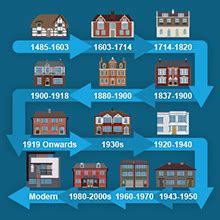Explore essential insights on land ownership, construction laws, approval processes, title transfers, and risks to navigate your real estate ventures smoothly.Building a house on land that you do not own may seem unconventional, but it is a reality for many individuals navigating the complexities of real estate and construction. Whether you’re considering a family home on leased land, a temporary structure for recreational use, or exploring innovative housing solutions, understanding the nuances of land ownership is crucial. This blog post will delve into the critical aspects of such arrangements, starting with the laws and regulations that govern land use. We’ll guide you through the permission and approval process, outline important considerations for title transfer, and highlight potential risks and liabilities associated with this unique approach to home construction. By shedding light on these topics, we aim to equip you with the knowledge needed to make informed decisions in your pursuit of land and homeownership.
Land Ownership and Construction
When it comes to land ownership, the construction of a home or any building involves several legal considerations. One of the most crucial aspects is verifying whether you own the land on which you intend to construct. Building a house on land that you do not legally own can lead to serious complications, including legal disputes and potential demolition orders from local authorities.
In many jurisdictions, before any construction can begin, property owners must ensure that they comply with zoning laws, building codes, and any other local regulations. The first step is to obtain an ownership certificate, which serves as proof that the land is indeed yours. Failure to have proper documentation can lead to significant financial liabilities.
It’s important to remember that even if you are leasing land, you must still secure permission from the landowner prior to starting construction. This often involves a formal agreement that outlines the terms, duration, and conditions under which you can build. Engaging with a legal expert familiar with land ownership laws can help in navigating this complex terrain and ensuring that yo
Laws and Regulations
Understanding the laws and regulations surrounding land ownership and construction is crucial for anyone considering a home built on land not owned. Various jurisdictions have different requirements, and failing to comply can lead to serious consequences.
Firstly, it is important to familiarize yourself with zoning laws. Zoning regulations dictate what type of structures can be built in certain areas. They can restrict the height, size, and purpose of the building, so it’s critical to check these requirements before proceeding with construction.
Additionally, obtaining the necessary permits is a vital part of compliance. Cities and municipalities typically require several permits for construction, including building permits, electrical permits, and plumbing permits. Without these permits, you may face fines and may even be forced to dismantle your construction. Always consult with your local authority to ensure you have the correct approvals.
Lastly, be aware of any environmental regulations that may apply. Depending on the location, environmental laws may protect certain habitats and dictate how land can be developed. Ignoring these laws can not only result in legal repercussions but may also harm the surrounding ecosystem.
In conclusion, when planning to build on land not owned, it is imperative to navigate the complex landscape of laws and regulations effectively. Engaging with legal professionals or local experts can help minimize the risks involved and ensure a smoother building process.
Permission and Approval Process
When considering a house built on land not owned, navigating the permission and approval process can be a complex but crucial step. Securing the right permits ensures that the construction complies with local laws and regulations. This process often involves multiple stages, including submitting plans, obtaining zoning variances, and gaining approvals from various authorities.
Typically, the first step in the permission process is to consult with local zoning laws to determine whether the intended construction is permissible. This might include verifying land use types and density restrictions. After confirming that the land use is appropriate, applicants must submit detailed plans that may include architectural designs, environmental assessments, and engineering reports.
Moreover, engaging with community stakeholders can be beneficial. Public hearings might be required, allowing residents to voice their opinions, which could influence the decisions of regulatory bodies. Understanding the approval timeline and preparing for potential delays is essential for anyone looking to construct on land not owned, as this can impact overall project timelines and costs.
Title Transfer Considerations
When it comes to real estate, managing the process of title transfer is essential for ensuring a smooth transaction. If you are planning to buy or sell property, it is crucial to understand the implications of title transfer and the necessary steps involved. This part of real estate transactions can significantly impact future ownership rights and responsibilities.
Firstly, it’s important to conduct a thorough title search before any transfer takes place. This involves reviewing public records to ensure that the title is clear of any liens, encumbrances, or disputes. A clear title is vital as it confirms that the seller has the right to transfer ownership to the buyer without any legal issues. If problems are identified, they need to be resolved before proceeding.
Additionally, the process requires the execution of legal documents, notably the deed. A deed serves as the official record of the property’s transfer and must be accurately filled out and executed in accordance with local laws. Depending on the jurisdiction, this might also involve a notary public to verify the identities of the parties involved. Lastly, it’s crucial to record the deed with the appropriate government authority to protect the buyer’s interests and provide public notice of the new ownership.
Potential Risks and Liabilities
Building a house on land that you do not own introduces significant risks and liabilities that can affect both your financial stability and legal standing. One of the primary concerns is the lack of legal ownership, which means you have no formal rights to the land. This increases the risk of being evicted by the actual landowner.
Additionally, if the land is under lease from the owner, any breach of lease terms could lead to costly legal battles. Even if you have constructed a beautiful house, it remains subject to the landowner’s rights, who can legally demand its removal. This situation often results in unexpected financial loss, especially if substantial funds are already invested in construction.
Furthermore, another potential liability comes from zoning laws and regulations. If the land is not properly zoned for residential use, you may face penalties from local authorities for unauthorized construction. These issues can lead to fines or even the complete demolition of your house, resulting in an uphill battle to sort out both legal and financial challenges.
Frequently Asked Questions
What does it mean to build a house on land not owned?
Building a house on land not owned refers to constructing a home on property that someone else owns, which can lead to legal issues such as tenancy, squatting, or land disputes.
Can you legally build a house on land you don’t own?
In most cases, you cannot legally build a house on land you don’t own without permission from the landowner. Doing so may be considered trespassing.
What are the risks involved in building on someone else’s land?
The risks include potential legal action, eviction, loss of investment, and complications related to property rights and local zoning laws.
Are there any exceptions for building on land not owned?
Yes, exceptions can exist if there is an agreement with the landowner, such as a lease or easement. It’s vital to have a written contract in these cases.
How can someone protect their investment if they build on land not owned?
To protect their investment, individuals should secure a legal agreement with the landowner, consult with a real estate attorney, and ensure compliance with local laws.
What should I do if I’ve built a house on land I don’t own?
If you’ve built a house on land you don’t own, it’s advisable to contact the landowner and seek a resolution, potentially exploring options like purchasing the land or negotiating a rental agreement.
What are the consequences of building a house illegally on someone else’s property?
Consequences may include demolition of the structure, fines, lawsuits from the landowner, and possible criminal charges related to trespassing or zoning violations.





